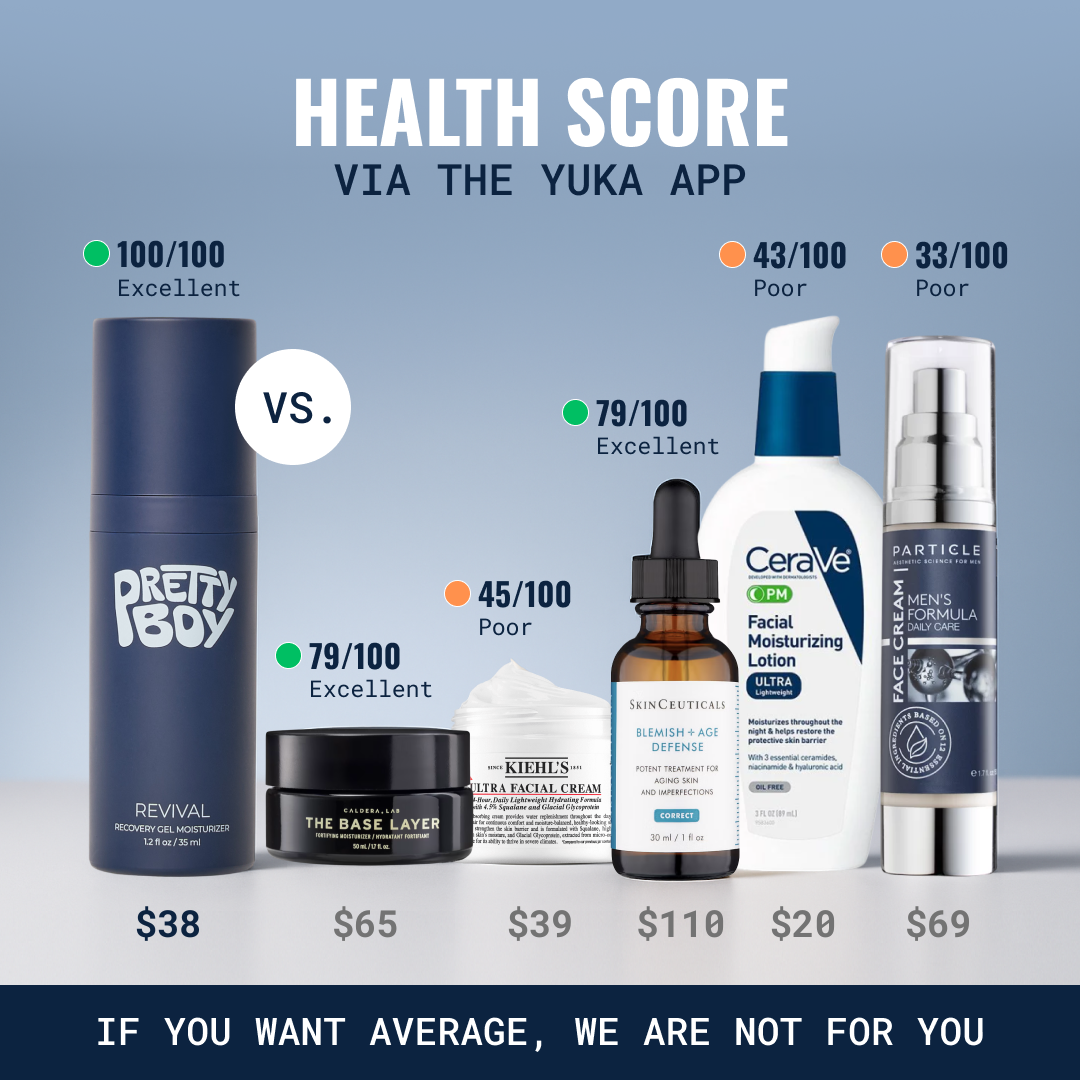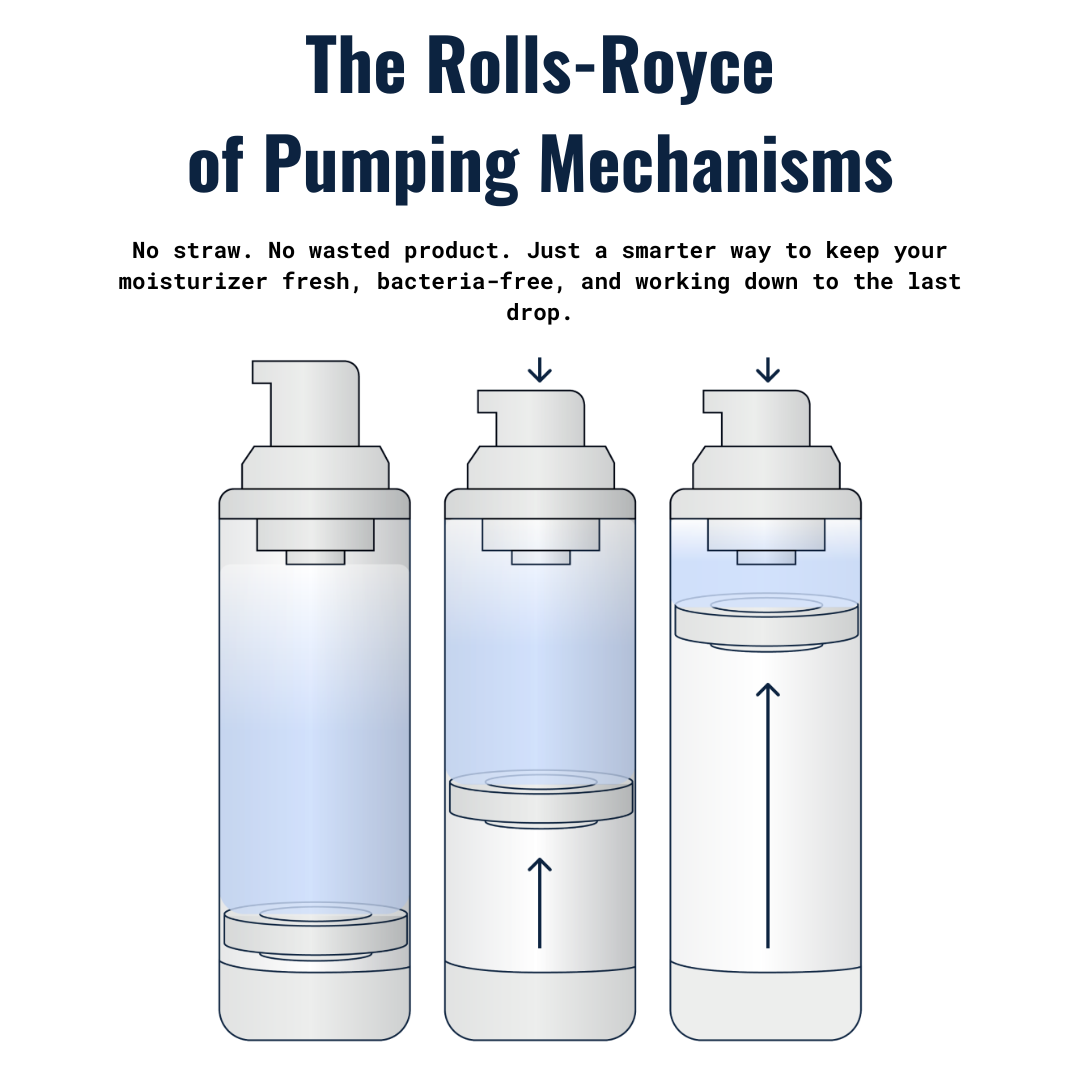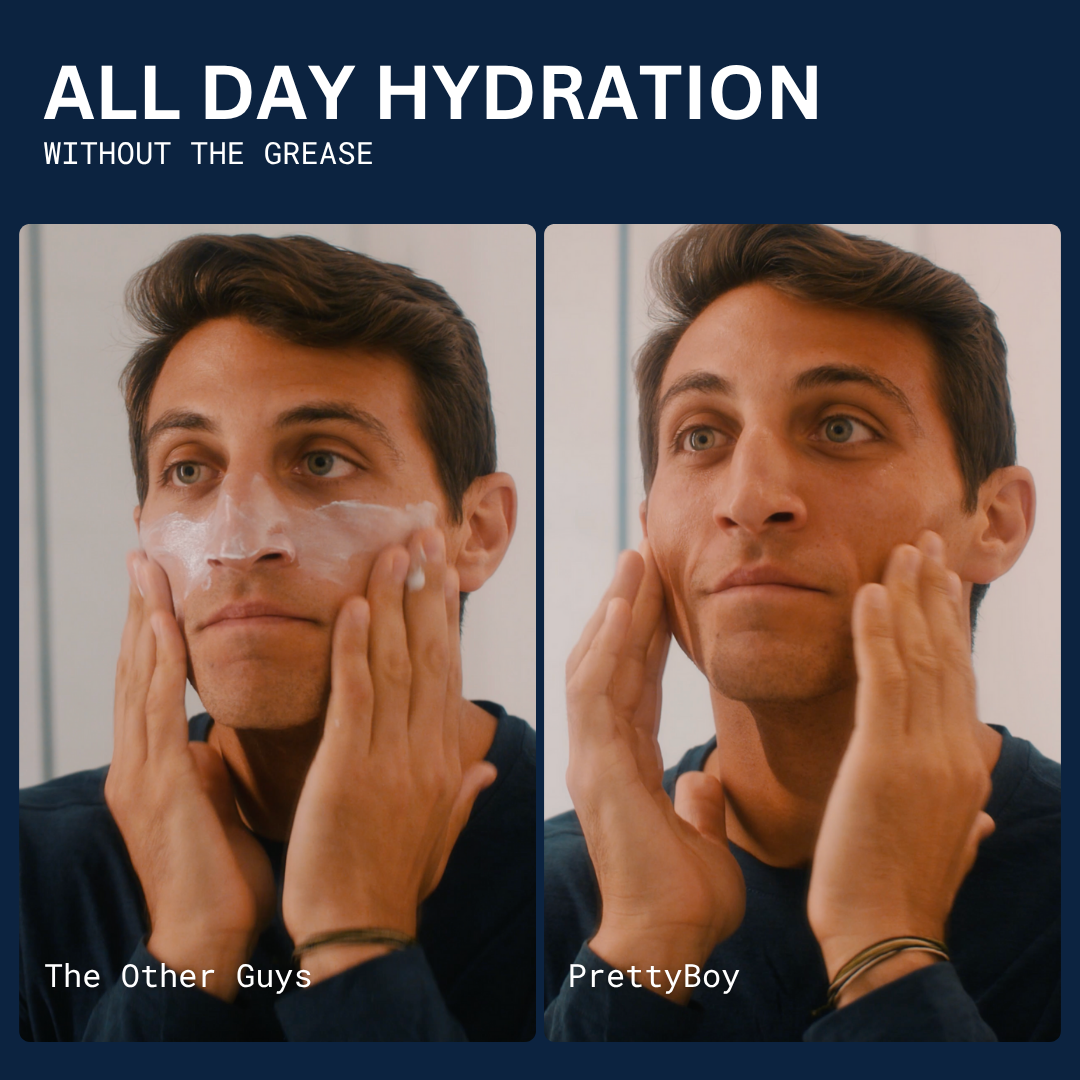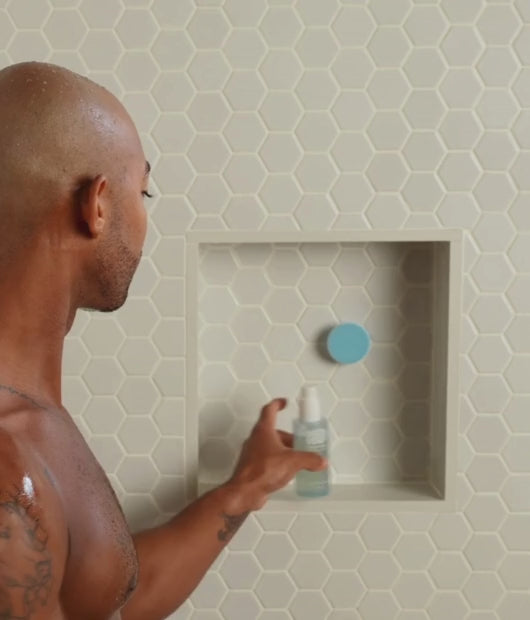Niacinamide can reduce the appearance of acne scars by inhibiting the transfer of melanin to your skin's surface, which can help lighten dark spots and hyperpigmentation caused by breakouts.
Almost every dude deals with acne at some point, whether it’s during your middle school “awkward phase” or in your thirties. As if the embarrassment and discomfort of zits weren’t enough to deal with, they can leave behind stubborn scars—especially if you pop and pick your pimples.
From laser resurfacing to chemical peels, there are dozens of high-tech treatments for acne scars. But if you aren’t ready for a trip to the dermatologist, there’s a topical treatment that’s effective and affordable: Niacinamide.
Niacinamide (a form of vitamin B3, or niacin) is a water-soluble vitamin that works all sorts of wonders for acne-prone skin. It’s got anti-inflammatory properties that calm redness and inflammation, plus it helps regulate oil production to prevent acne. But can it really erase the evidence of old breakouts?
Keep reading to learn how niacinamide helps with acne scars, how long it takes to see results, and how to incorporate it into your skincare routine.
Does Niacinamide Help With Acne Scars?
Yes, niacinamide can help fade acne scars by inhibiting melanin production, promoting collagen production, and reducing redness. Niacinamide may not completely eliminate deep or pitted scars, but it can reduce discoloration and hyperpigmentation. Keep in mind that results can vary depending on your skin type and the severity of the scarring.
Let’s take a closer look at three ways niacinamide works to get rid of acne scars:
Inhibits Melanin Production
Niacinamide can slow down the transfer of melanin (the pigment responsible for skin color) from melanocytes (cells that produce melanin) to your skin cells.
Still with us? Cool.
By slowing down this process, niacinamide helps to reduce the amount of melanin in your skin, leading to a reduction in hyperpigmentation.
Boosts Collagen Production
Collagen is a protein that gives your skin structure and elasticity. Acne scars, especially ones that are depressed or indented, result from a lack of collagen and elastin fibers in the skin's deeper layers. Niacinamide stimulates collagen synthesis, leading to firmer, more resilient skin. Over time, this can help fill in depressed scars and improve your skin texture.
Reduces Redness and Inflammation
Niacinamide has anti-inflammatory properties, which come in clutch for acne scars. Acne scars often result from inflammatory acne lesions, where your skin gets inflamed from excess oil, bacteria, and grime. By reducing inflammation, niacinamide helps to calm the skin and minimize the redness and swelling associated with acne scars. This anti-inflammatory effect can contribute to a smoother and more even skin texture over time.
How Long Does It Take for Niacinamide to Get Rid of Acne Scars?
You can expect to see improvements in your acne scars within 4-8 weeks of using niacinamide (Opens in a new window) (Opens in a new window) regularly, according to a study published in Dermatology Research and Practice.
Niacinamide may be a skincare superhero, but it's not going to work overnight miracles like a genie granting wishes. Everyone's skin is different. Some people might start seeing results faster than others, and that's totally normal. But generally speaking, you gotta trust the process.
Getting rid of acne scars is like getting those gains at the gym—consistency is key.
How to Use Niacinamide for Acne Scars
An easy, effective way to use niacinamide for acne scars is to apply a moisturizer with a 2-5% concentration of niacinamide twice daily (Opens in a new window) (Opens in a new window). After washing your face, pat it dry and then massage a dime-sized amount of moisturizer into every nook and cranny of your face.
Newsflash: You don’t need a special niacinamide serum. Niacinamide plays well with other skincare ingredients like hyaluronic acid, ceramides, and glycerin. That’s why we developed the ideal ratio and put it in Revival: our daily moisturizer that targets acne scars as well as dry skin, fine lines, razor burn, and dark circles under your eyes.
Remember, niacinamide works best when you use it daily, so consistency is key. No skincare situationships here, fellas.
Niacinamide vs. Salicylic Acid for Acne Scars: Which Works Better?
If you wander down the skincare aisle at your local drugstore, one of the most popular ingredients you’ll find is salicylic acid: a compound that sheds dead skin cells and decreases swelling from zits.
Salicylic acid’s exfoliating properties can indirectly improve the appearance of acne scars by promoting skin renewal, but it can also zap your skin’s moisture and cause irritation—especially if you have sensitive skin.
By contrast, niacinamide addresses the core issues of acne scars, which are hyperpigmentation, lack of collagen, and inflammation.
Bottom line: Niacinamide is ideal for addressing inflammation, hyperpigmentation, and redness associated with acne scars, while salicylic acid is better for treating and preventing breakouts.
PrettyBoys Use Niacinamide
Back in the day, niacinamide was limited to women with 27-step skincare routines. We’re not about gatekeeping amazing ingredients, so we put all the niacinamide you need into Revival: our simple daily moisturizer for active men.
Just like drinking water and washing your face, niacinamide should be part of your daily routine if you want your skin to look the best it can be. Whether you’re battling acne scars, oily skin (Opens in a new window) (Opens in a new window), or redness, one pump of Revival per day goes a long way.





















